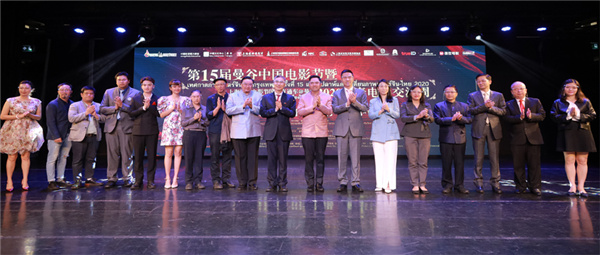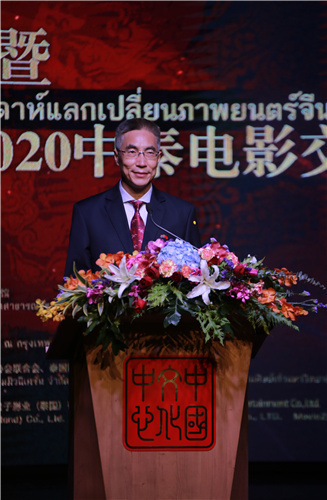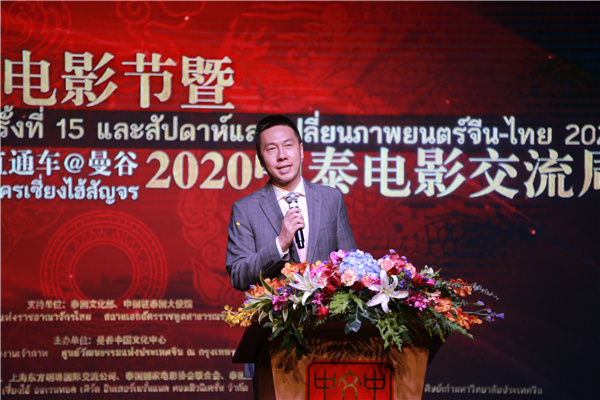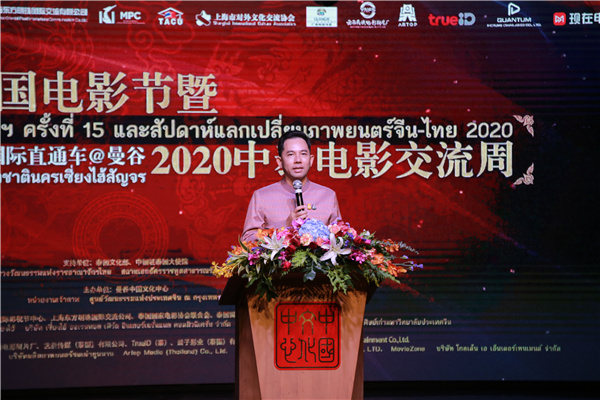 |
|
Each of the highest-grossing blockbusters from 2016 to this year has been a homegrown work, including Dante Lam's Operation Red Sea (2018). |
Last year, the number fell slightly to 850. Coupled with other genres, including science education and documentaries, China's annual production reached 1,037 films in 2019.
"When I started to work as a filmmaker in the late 1990s, China produced only around 100 feature films a year," Jia says.
"The rapid growth provides a wide selection for local movie enthusiasts and lays the foundation for more international exchanges."
Domestic films' market share and box-office takings have also grown rapidly.
In 2016, domestic films earned a total of 26.7 billion yuan, accounting for 58.3 percent of overall box-office revenues. The two figures respectively rose to 37.9 billion and 62.2 percent in 2019, indicating domestic films are becoming more popular among local theatergoers.
Each of the highest-grossing blockbusters from 2016 to this year has been a homegrown work, including Stephen Chow's The Mermaid, Wu Jing's Wolf Warrior II, Dante Lam's Operation Red Sea, Jiao Zi's Ne Zha and Guan Hu's The Eight Hundred.
Despite the effects of the COVID-19 outbreak, Chinese films had grossed 11 billion yuan as of Oct 15, accounting for nearly 85 percent of total sales, which were boosted by the war epic The Eight Hundred and National Day blockbusters My People, My Homeland and Jiang Ziya: Legend of Deification.
Director Lu Chuan, known for City of Life and Death, says: "Statistics can tell us everything. In the early 2000s, China's annual box-office take accounted for a small proportion of the global total. But since 2016, it has caught up (with the world's top players)."
 |
The 15th Chinese Film Festival in Bangkok and the 2020 China-Thailand Film Exchange Week opens at the China Cultural Center in Bangkok on Oct 25, 2020. [Photo provided to Chinaculture.org] |
On Oct 25, the opening ceremony of the 15th Chinese Film Festival in Bangkok and the 2020 China-Thailand Film Exchange Week was held at the China Cultural Center in Bangkok. The event was hosted by the China Cultural Center in Bangkok and received strong support from the Chinese Embassy in Thailand and the Thai Ministry of Culture.
The COVID-19 pandemic doesn't impede the enthusiasm for cultural exchange between China and Thailand. This film festival uses live broadcast to present the opening ceremony and host the "China-Thailand Film Exchange and Cooperation Online Seminar". During the film festival, audiences can use the online platform of the China Cultural Center in Bangkok to watch films online, which greatly increases the global reach of the festival.
 |
Gu Hongxing, director of the China Cultural Center in Bangkok and China Tourism Office in Bangkok, speaks at the opening ceremony. [Photo provided to Chinaculture.org] |
Gu Hongxing, director of Bangkok's China Cultural Center and China Tourism Office, said film can not only introduce one's national culture, but also reflect unique social landscapes. Film has become an important part of cultural exchange between countries and enhance mutual understanding among people around the world.
 |
Yang Xin, Chargé d'affaires of the Chinese Embassy in Thailand, speaks at the opening ceremony. [Photo provided to Chinaculture.org] |
Yang Xin, Chargé d'affaires of the Chinese Embassy in Thailand, said since the establishment of diplomatic relations between China and Thailand 45 years ago, the mutual trust between the two countries has continued to deepen, economic and trade cooperation has expanded, cultural exchanges have become closer, and all-around cooperation has achieved fruitful results. Both China and Thailand have a vast film market. As a traditional project of cultural exchanges between China and Thailand, the Bangkok Chinese Film Festival has laid a solid foundation for film cooperation between the two countries for 15 years and will add new drive to the promotion of cultural exchanges and cooperation between China and Thailand.
 |
Itthiphol Kunplome, Thailand's minister of culture, speaks at the opening ceremony. [Photo provided to Chinaculture.org] |
Thailand's Minister of Culture Itthiphol Kunplome said in his speech the governments and people of Thailand and China have been in constant exchange. Cooperation in various fields has developed steadily, and the film festival is another important event to further promote cultural exchanges between the two countries. The people of the two countries can promote their understanding of the cultures of both sides through films, and promote friendly relations and cooperation in other perspectives.